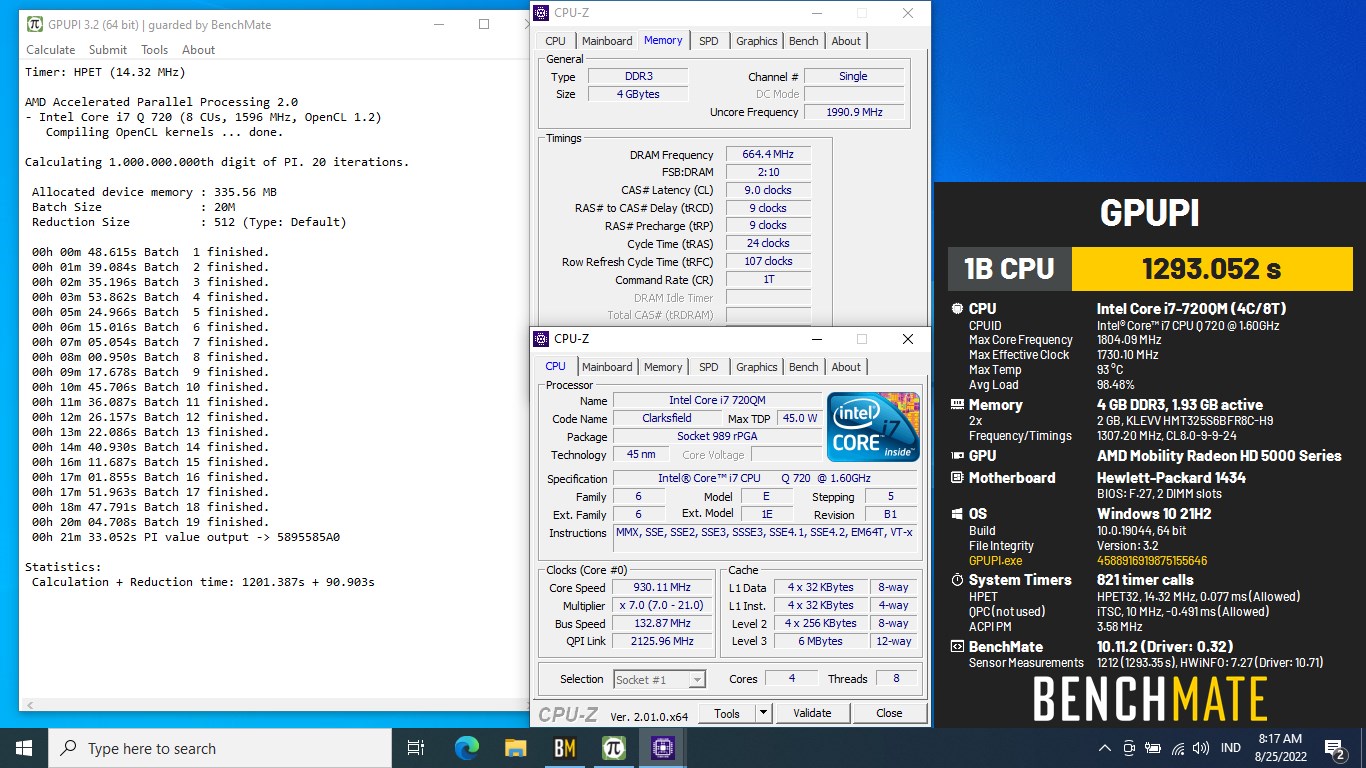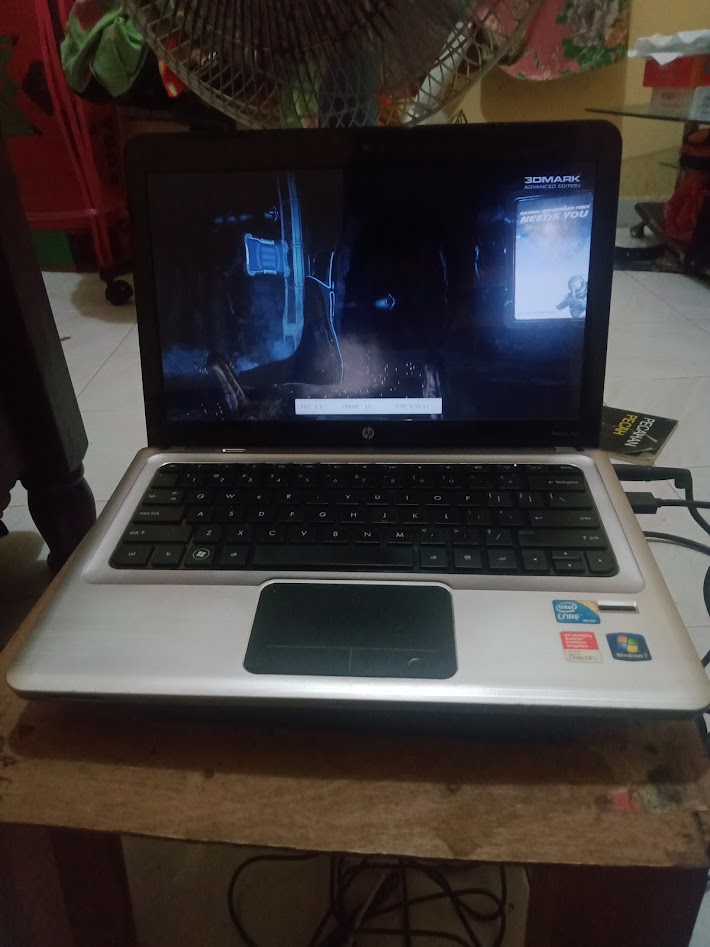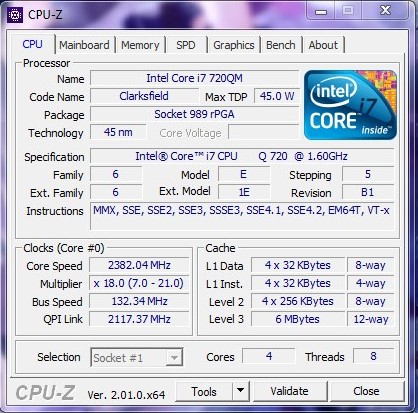GPUPI for CPU - 1B score 21min 33sec 52ms with a i7-720QM
Thursday, 01 January 1970 07:00 | Update at null
Media Gallery
Screenshot

Device, Setup, etc



URL
https://hwbot.org/submission/5067410https://bit.ly/3KKGMu9
Information Detail
Hardware: Intel Core i7 720QM
Specs:CPUID : Intel(R) Core(TM) i7 CPU Q 720 @ 1.60GHz
Architecture : x86
Codename : Clarksfield
L3 Cache : 6MB
Clock : 1.60GHz - 2.80GHz
Core/Thread : 4/8
TDP : 45W
Technology : 45nm
Socket : PGA988
IGPU : -
See more specification...
Software: GPUPI for CPU - 1B
Score: 21min 33sec 52ms
About: GPUPI for CPU - 1BGPUPI for CPU – 1B is a heavy-duty computational benchmark designed to measure the capability of a processor (CPU) in solving extreme mathematical calculations, by calculating the value of π (pi) to 1 billion decimal places. This benchmark uses the highly efficient BBP (Bailey–Borwein–Plouffe) algorithm, which is well-suited for leveraging modern CPU architectures, both in terms of single-thread and multi-thread performance.
In this test, GPUPI pushes the CPU to its limits with extremely complex and intensive numerical workloads. Compared to the 100M version, the 1B configuration offers a significantly heavier workload and longer duration, making it ideal for assessing long-term performance, system stability, and cooling efficiency. The benchmark results are displayed in units of time (seconds), where a lower score indicates that the CPU can complete the task faster.
This benchmark automatically utilizes all available cores and threads to provide an accurate picture of the CPU's parallel computing capabilities, making it highly relevant for real-world applications such as scientific simulations, video encoding, data mining, and engineering software.
GPUPI for CPU – 1B is also widely used in the overclocking community as an extreme stress test tool and for validating system stability at high frequencies. The accuracy of the results and sensitivity to system configuration changes make this benchmark highly valued in testing high-end hardware performance.
With support for BenchMate integration, GPUPI also ensures the security and authenticity of scores, making it a trusted and widely used benchmarking tool in competitions and professional hardware reviews.
In summary, GPUPI for CPU – 1B is a highly demanding and accurate numerical CPU performance benchmark, suitable for testing the maximum limits of modern computing systems.
The Intel Core i7-720QM, launched in Q3 2009, was one of the first mobile quad-core processors to feature Intel's Nehalem microarchitecture, specifically the Clarksfield variant. Targeted at high-performance laptops, such as gaming machines and mobile workstations, the i7-720QM brought 4 physical cores and 8 threads to the mobile platform, thanks to Hyper-Threading Technology providing a significant boost in multi-threaded workloads like video editing, 3D rendering, and other professional-grade applications. The processor runs at a base clock speed of 1.6 GHz, but it can dynamically increase up to 2.8 GHz using Intel Turbo Boost, depending on thermal headroom and power availability.
Manufactured using a 45nm process, the i7-720QM has a TDP of 45W, which is quite high by today's mobile CPU standards. This thermal demand necessitated more robust cooling solutions in laptops that featured the chip. Unlike modern CPUs, the i7-720QM does not come with integrated graphics, which means systems based on this processor require a dedicated GPU often from AMD or NVIDIA for graphics processing and display output. As such, it was typically paired with mid-to-high-end discrete graphics cards in its time, making it a solid choice for gaming and multimedia laptops in the late 2000s and early 2010s.
While the Core i7-720QM was a powerhouse during its release, its performance and efficiency are significantly outpaced by modern CPUs built on smaller nodes and with higher IPC (Instructions Per Clock). Nevertheless, legacy laptops using the i7-720QM can still be viable for basic computing tasks like web browsing, document editing, or watching videos especially if paired with an SSD upgrade and increased RAM. Users running Windows 10 on such systems may experience some limitations, but with proper optimization and lightweight software, the CPU can still deliver a usable experience in non-demanding environments.
Hardware Detail:
Device: HP Pavilion dv3-4054TX
RAM: 4GB DDR3 Single Channel
OS: Windows 7, Windows 10
* Not Avaiable
